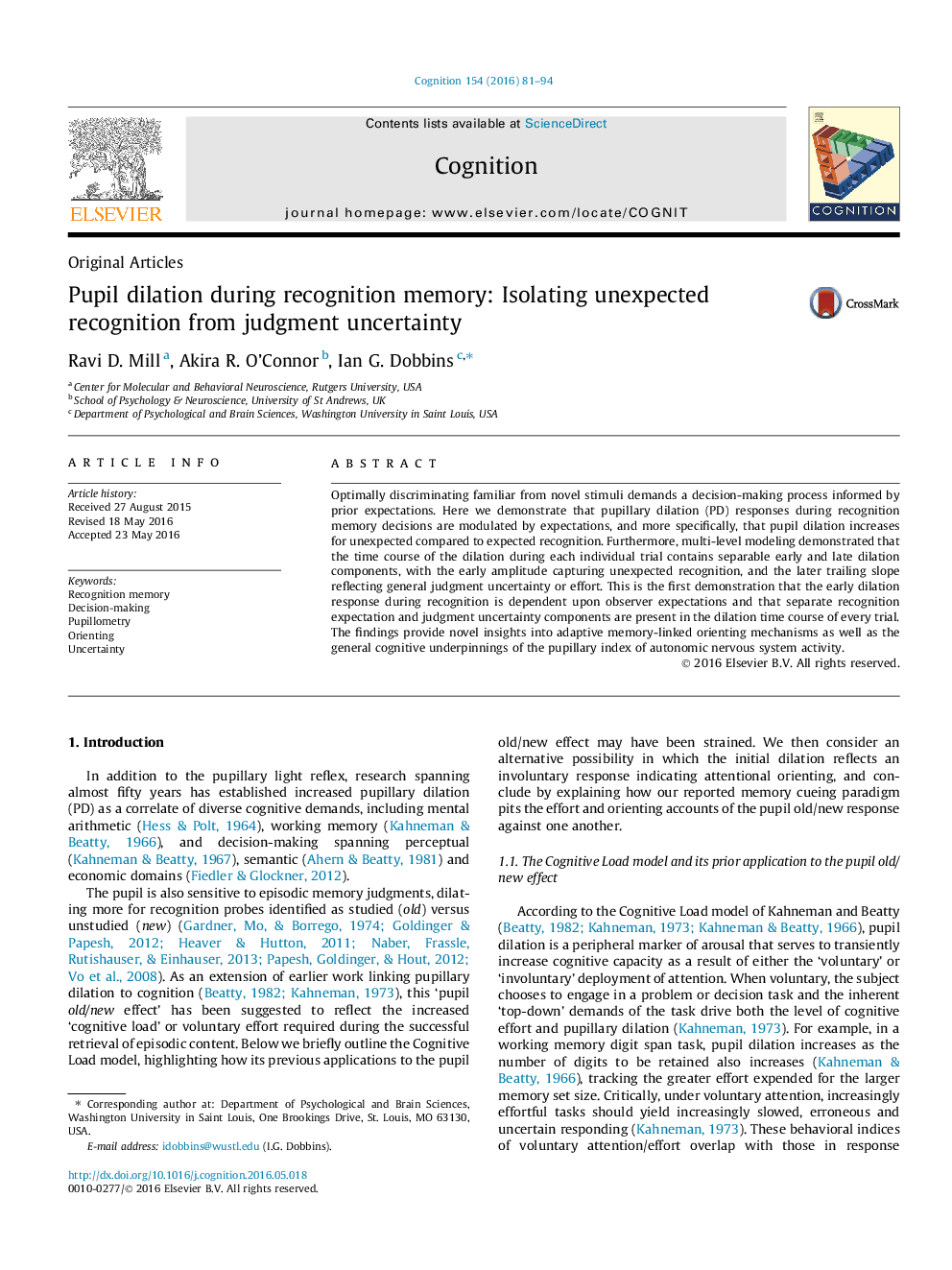| Article ID | Journal | Published Year | Pages | File Type |
|---|---|---|---|---|
| 7285906 | Cognition | 2016 | 14 Pages |
Abstract
Optimally discriminating familiar from novel stimuli demands a decision-making process informed by prior expectations. Here we demonstrate that pupillary dilation (PD) responses during recognition memory decisions are modulated by expectations, and more specifically, that pupil dilation increases for unexpected compared to expected recognition. Furthermore, multi-level modeling demonstrated that the time course of the dilation during each individual trial contains separable early and late dilation components, with the early amplitude capturing unexpected recognition, and the later trailing slope reflecting general judgment uncertainty or effort. This is the first demonstration that the early dilation response during recognition is dependent upon observer expectations and that separate recognition expectation and judgment uncertainty components are present in the dilation time course of every trial. The findings provide novel insights into adaptive memory-linked orienting mechanisms as well as the general cognitive underpinnings of the pupillary index of autonomic nervous system activity.
Related Topics
Life Sciences
Neuroscience
Cognitive Neuroscience
Authors
Ravi D. Mill, Akira R. O'Connor, Ian G. Dobbins,
